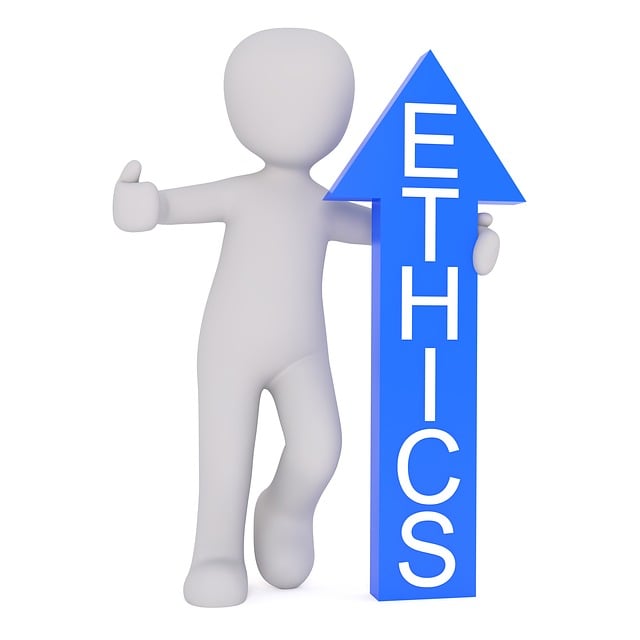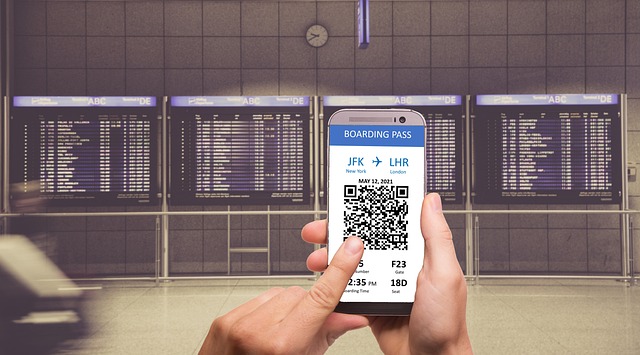The importance of upholding corporate integrity across global operations is underscored, highlighting the necessity for accurate translations of the UK Code of Conduct and Ethics. Specialized translation services are essential to ensure these ethical guidelines are accessible to all employees, regardless of language barriers. These services provide precise translations into various languages, fostering a unified culture of integrity worldwide by preventing communication errors and cultural misunderstandings that could undermine ethical compliance. By investing in high-quality UK Code of Conduct and Ethics translation services, companies enhance their international reputation, ensure adherence to ethical standards across different regions, and maintain favorable relationships with clients, partners, and regulatory bodies. A case study demonstrates the successful integration of the UK Code within an international corporation's ethics code through the use of these specialized translation services, which not only overcame language barriers but also promoted inclusivity, interdepartmental communication, and a harmonious work environment that respects cultural diversity. The role of these translation services is critical in accurately conveying ethical conduct across various languages, thereby supporting effective corporate governance within UK organisations committed to ethical practices.
In today’s global business environment, maintaining a uniform standard of ethics is paramount for corporate integrity. This article explores the significance of translating the UK Code of Conduct and Ethics to foster effective communication across diverse linguistic teams. We delve into the strategies that UK Code of Conduct and Ethics translation services employ to bridge language barriers, ensuring ethical guidelines are universally understood. Through a case study examining the successful implementation of these translated codes, we illustrate best practices for cultivating a culture of ethics within international teams. By leveraging expert translation, companies can align their global operations with the UK’s high standards of conduct, promoting transparency and trust in a multicultural corporate landscape.
- Maximizing Corporate Integrity: The Role of UK Code of Conduct and Ethics Translation Services
- Bridging Language Barriers: Strategies for Effective Translation of Ethical Guidelines
- Case Study: Successful Implementation of Multilingual UK Code of Conduct Across Global Teams
- Cultivating a Culture of Ethics: Best Practices for Translating Corporate Ethics Codes in the UK Context
Maximizing Corporate Integrity: The Role of UK Code of Conduct and Ethics Translation Services

In an increasingly globalized business environment, maintaining corporate integrity is paramount for the reputation and success of any organization. The UK Code of Conduct and Ethics serves as a cornerstone for ethical behavior within companies operating under British jurisdiction or seeking to align with its high standards. To ensure that these principles are not confined to English-speaking employees but are accessible to all, translation services play a critical role. Specialist UK Code of Conduct and Ethics translation services bridge language barriers, allowing the ethical framework to be understood and adhered to by a diverse workforce. This inclusivity is crucial for fostering a culture of integrity across different regions where a company may have operations, thereby mitigating risks associated with miscommunication or cultural misunderstandings. By facilitating the precise translation of ethical guidelines, these services enable global teams to operate cohesively, upholding the values and expectations set forth by the organization’s leadership.
The importance of accurate translations in conveying the UK Code of Conduct and Ethics cannot be overstated. Every word must carry the same weight and intent as the original text to preserve the integrity of the message. High-quality translation services are not just a matter of linguistic accuracy but are essential for ethical compliance. They ensure that the nuances of ethical language are preserved, providing a transparent and trustworthy environment for all stakeholders. Companies that invest in these services demonstrate a commitment to upholding their ethical standards globally, which can enhance their reputation with clients, partners, and regulatory bodies alike. The role of UK Code of Conduct and Ethics translation services is therefore indispensable for any organization looking to maximize corporate integrity on an international scale.
Bridging Language Barriers: Strategies for Effective Translation of Ethical Guidelines

In today’s globalized business environment, where multinational corporations operate across diverse cultural and linguistic landscapes, the necessity for clear and consistent communication of ethical guidelines is paramount. The UK Code of Conduct and Ethics, serving as a cornerstone of corporate integrity, must transcend language barriers to be effectively understood by all employees worldwide. To achieve this, translation services that specialize in such delicate content are essential. These services ensure that the original intent and nuances of ethical guidelines are preserved, allowing for a unified understanding across different regions. The strategies employed by these services often involve meticulous attention to detail and cultural context, ensuring that translations convey not just the letter but also the spirit of the UK Code of Conduct and Ethics. This involves selecting translators with expertise in both corporate ethics and the target language, as well as utilizing advanced translation technology where appropriate. By doing so, companies can bridge language barriers, thereby fostering a culture of ethical conduct that is accessible to all employees, regardless of their linguistic background.
Furthermore, the effectiveness of translated corporate codes of ethics hinges on the translators’ ability to adapt the content to local contexts while maintaining its core principles. This adaptive translation process involves not only a word-for-word conversion but also a comprehensive understanding of cultural nuances and regional regulations that may impact the interpretation of ethical guidelines. It is through this tailored approach that the integrity of the UK Code of Conduct and Ethics can be upheld, ensuring that employees worldwide are held to the same ethical standards, thus promoting trust and accountability across the entire organization. This commitment to accurate and culturally sensitive translations not only aids in legal compliance but also enhances the company’s reputation for integrity and responsibility in international markets.
Case Study: Successful Implementation of Multilingual UK Code of Conduct Across Global Teams

In an era where global collaboration is paramount, the successful implementation of the UK Code of Conduct across international teams hinges on effective communication. A case study that exemplifies this is a multinational corporation’s initiative to translate its ethics code into multiple languages, facilitated by professional UK Code of Conduct and Ethics translation services. This strategic move ensured that all employees, regardless of their linguistic background, could fully comprehend the ethical standards and expectations set forth by the company. The translation services provided not only accurate translations but also culturally relevant adaptations to ensure the code’s principles were universally understood and adhered to. This initiative allowed for a seamless integration of the UK’s ethical framework into the daily operations of global teams, fostering a shared understanding of ethical conduct and promoting trust and transparency across all levels of the organization. The result was a marked improvement in interdepartmental communication and a harmonious work environment that respected the cultural diversity within the company while maintaining a consistent ethical standard.
The impact of this translation initiative was multifaceted. It not only bridged language barriers but also fostered an inclusive culture where every employee, from London to Lima, felt equally bound by the same set of principles. This inclusivity was instrumental in building a robust ethical foundation for the company’s global operations. Furthermore, the use of specialized UK Code of Conduct and Ethics translation services ensured that the nuances and complexities inherent in ethics were accurately conveyed across different languages. This precision in translation empowered employees to make informed decisions, upholding the company’s integrity and reputation on an international scale. The case study underscores the critical role of expert translation services in global business practices, demonstrating that a universally understood ethical code is not just a document but a living framework for corporate governance.
Cultivating a Culture of Ethics: Best Practices for Translating Corporate Ethics Codes in the UK Context

In the UK, fostering a culture of ethics within organisations is paramount to maintaining integrity and trust among stakeholders. Translating corporate ethics codes into languages spoken by employees is a critical step in this process. Utilising UK Code of Conduct and Ethics translation services ensures that all employees, regardless of their linguistic background, have access to the same ethical standards and expectations. This inclusivity not only aligns with legal requirements under the Equality Act 2010 but also demonstrates a commitment to diversity and inclusion. The choice of translation service is crucial; it should be competent in capturing the nuances and subtleties inherent in language, particularly in terms of cultural relevance and legal compliance. This is where UK-specific services excel, providing translations that are not only linguistically accurate but also contextually appropriate for the local audience.
To effectively translate corporate ethics codes, it is essential to adopt a collaborative approach that involves subject matter experts, translators, and communication specialists. These multidisciplinary teams work together to ensure that the translated text accurately reflects the original content’s intent and tone. This process often includes a thorough review and comparison of various versions, ensuring that all translations adhere to both the letter and spirit of the source material. By leveraging UK Code of Conduct and Ethics translation services that combine deep linguistic expertise with an understanding of ethical frameworks, organisations can effectively bridge language barriers while upholding their commitment to ethical conduct across diverse workforce environments.
In conclusion, the translations of the UK Code of Conduct and Ethics have proven to be a pivotal tool in fostering a uniform ethical framework within multinational corporations. By leveraging specialized UK Code of Conduct and Ethics translation services, companies can bridge language barriers effectively, ensuring that all employees, regardless of their linguistic background, understand the ethical guidelines that govern their workplace. The case study presented highlights the successful integration of these translated codes across global teams, demonstrating that a consistent message can be conveyed universally, thereby promoting a culture of ethics that resonates with diverse workforces. As organizations continue to expand internationally, the necessity for such translation services becomes increasingly evident, serving as a cornerstone for corporate integrity and compliance in a globalized economy.



